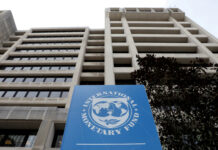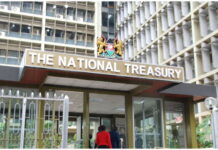Kenya Power has denied media reports that it has been inflating electricity bills by up to 20%, claiming that the company operates in a regulated environment.
In a statement issued on Tuesday, the power distributor described the reports as “not only nonfactual, but also geared towards building a false narrative around the cost of electricity and tarnishing the brand”.
On Monday, media reports cited Auditor General Nancy Gathungu’s report, which claimed the company overcharges customers for electricity they do not use, claims the utility has denied.
“Kenya Power operates in a regulated environment that is guided by the Energy Act of 2019. All charges as contained in the electricity bills are approved by the regulator (the Energy and Petroleum Regulatory Authority – EPRA) for all categories of customers,” Kenya Power stated in a statement.
According to the company, all bills are calculated based on customer consumption, which is the difference between the current metre reading and the previous reading (as taken during the previous month), as well as tariffs, levies and taxes.
According to the reports, part of what inflates electricity bills is the miscalculation of system losses, which are normally passed on to consumers.
“Part of power system losses are inevitable during transmission and distribution of power; therefore, the regulator sets a threshold for the allowable system losses that is factored in the tariff. Kenya Power meets the cost of system losses incurred above what is allowed,” Kenya Power stated.
EPRA has allowed system losses of up to 18.5% in the fiscal year 2023/2024.
Kenya Power also stated that the EPRA checks and verifies that the company charges its customers at the rates approved by the regulator.
Furthermore, the utility has dismissed claims that missing or faulty metres result in consumers receiving bills that do not correspond to their consumption.
The audit also revealed that only 38 of the 96 generation plants supplying power to Kenya Power had check metres, and all 38 were off-the-grid power stations.
“Kenya Power buys electricity through one hundred (100) delivery points from fifty-eight (58) power suppliers that include KenGen, IPPs, REREC, and imports and all these delivery points have been verified to have both main and backup meters (check meters) as required in the respective Power Purchase Agreements,” Kenya Power noted.

















